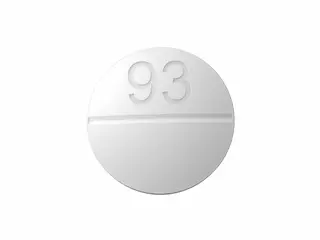Gastrointestinal Health
Explore our range of effective gastrointestinal health products designed to support digestion, relieve discomfort, and promote a balanced gut. Shop quality supplements and remedies for optimal digestive wellness today.
Gastrointestinal health is crucial for overall well-being. Many people face digestive issues such as acid reflux, indigestion, irritable bowel syndrome (IBS), and diarrhea. Several medications help manage these conditions effectively. Here's a review of popular drugs in this category.
Aciphex (Rabeprazole) is a proton pump inhibitor (PPI). It reduces stomach acid production. Aciphex treats GERD, ulcers, and Zollinger-Ellison syndrome. It generally works quickly. Most users report relief from heartburn and acid reflux within days. Common side effects include headache and nausea. It’s considered safe for long-term use under doctor supervision.
Asacol (Mesalamine) targets inflammation in the colon. It’s mainly prescribed for ulcerative colitis. Asacol helps reduce symptoms like diarrhea, abdominal pain, and rectal bleeding. The medication releases mesalamine directly at the inflamed site. This local action minimizes side effects. Some patients experience headaches or upset stomach. Regular monitoring is advised during treatment.
Colospa (Mebeverine) is an antispasmodic agent. It relaxes the muscles in the gut to reduce cramping and spasms. Colospa is often used to relieve IBS symptoms. Users find it effective for soothing abdominal pain and discomfort. Side effects are rare but may include dizziness or nausea. It is considered safe and well-tolerated.
Imodium (Loperamide) is a popular anti-diarrheal medication. It slows bowel movements by affecting the muscles in the intestines. Imodium provides quick relief from acute diarrhea. Many travelers rely on it to manage symptoms during trips. While effective, it should not be used for prolonged periods without medical advice. Side effects may include constipation or dizziness.
Maxolon (Metoclopramide) improves stomach emptying and reduces nausea. It is often prescribed for gastroparesis and severe reflux symptoms. Maxolon can also be used to prevent nausea after surgery or chemotherapy. Users should be cautious of side effects like fatigue, restlessness, or involuntary muscle movements. Long-term use requires careful supervision.
Motilium (Domperidone) is similar to Maxolon but has fewer effects on the brain. It also helps reduce nausea and enhances gastric motility. Motilium is often favored for treating nausea related to certain gastrointestinal conditions. Common side effects include dry mouth and abdominal cramps. It should be used under medical guidance, especially in patients with heart conditions.
Nexium (Esomeprazole) belongs to the PPI family like Aciphex. It is widely used for GERD, erosive esophagitis, and prevention of stomach ulcers. Nexium provides potent acid suppression and fast symptomatic relief. Users report significant improvement in heartburn and acid reflux symptoms. Possible side effects include headache, diarrhea, and abdominal pain. Nexium is safe for long-term treatment with proper monitoring.
Pentasa (Mesalamine) is another anti-inflammatory drug used for ulcerative colitis and Crohn’s disease. It’s designed to release mesalamine throughout the intestines. This makes Pentasa suitable for extensive inflammation. Side effects are usually mild and include headache or nausea. It plays a key role in maintaining remission in inflammatory bowel disease patients.
Pepcid (Famotidine) is an H2 receptor blocker that reduces acid production. It is effective for GERD, gastritis, and ulcers. Pepcid works faster than PPIs but might not provide as long-lasting acid suppression. It is a good option for mild to moderate symptoms. Side effects are rare but may include headache or dizziness. It is often available over-the-counter for short-term use.
Prevacid (Lansoprazole) is another PPI widely used for acid-related conditions. It treats GERD, ulcers, and Zollinger-Ellison syndrome. Prevacid offers long-lasting acid control and helps heal the esophagus. Users appreciate its effectiveness in reducing heartburn and regurgitation. Side effects might include diarrhea, headache, or vitamin deficiencies with prolonged use.
Prilosec (Omeprazole) started the PPI revolution and remains a top choice for acid reflux. It effectively reduces stomach acid and helps heal GERD symptoms. Many individuals use Prilosec daily to keep symptoms under control. Common side effects include headache and gastrointestinal upset. Long-term users should monitor for potential complications like bone fractures or magnesium deficiency.
Protonix (Pantoprazole) is another trusted PPI used for erosive esophagitis and GERD. It provides strong acid suppression and symptom relief. Protonix has a favorable safety profile and minimal drug interactions. Users report improvement in heartburn and acid reflux symptoms within days. Side effects are similar to other PPIs and may include headache and diarrhea.
Reglan (Metoclopramide) is the generic name for Maxolon and shares the same benefits and risks. It helps with nausea and gastric emptying. Reglan is often utilized when delayed stomach emptying causes discomfort. Patients must follow dosing guidelines due to risk of neurological side effects with long-term use.
Xifaxan (Rifaximin) is an antibiotic used for travelers’ diarrhea and hepatic encephalopathy. It stays mostly in the gut, targeting harmful bacteria without affecting good flora much. Xifaxan is effective against certain bacterial infections causing diarrhea and IBS with diarrhea (IBS-D). Side effects are uncommon but may include nausea or flatulence. It offers a targeted treatment option with limited systemic exposure.
In summary, treatments for gastrointestinal health cover acid suppression, inflammation control, symptom relief, and infection management. Proton pump inhibitors such as Aciphex, Nexium, Prilosec, and Protonix lead acid control therapy. H2 blockers like Pepcid provide faster but shorter acid relief. Anti-inflammatory drugs Asacol and Pentasa help inflammatory bowel diseases. Antispasmodics like Colospa ease IBS symptoms. Anti-diarrheals such as Imodium and antibiotics like Xifaxan address different causes of diarrhea. Prokinetics like Maxolon and Motilium improve motility and reduce nausea.
Each medication has its own profile of effectiveness and possible side effects. Patients should use these medications based on doctor recommendations. Monitoring and adjusting treatment can help optimize gastrointestinal health safely.
















